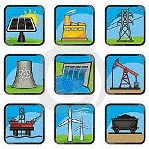Department of Agricultural Economics: Undergraduate Research

Op-Eds from ENSC230 Energy and the Environment: Economics and Policies
Date of this Version
Fall 12-15-2015
Document Type
Editorial
Citation
Op-ed from ENSC 230. Energy and the Environment: Economics and Policy, University of Nebraska-Lincoln, Department of Agricultural Economics, Fall 2015
Abstract
As COP 21 closes in Paris, global animal agriculture is a topic that has eluded the international media. Animal agriculture is responsible for more global greenhouse gas emissions than transportation according to the U.N.’s Food and Agriculture Organization. With global population and prosperity rising, the global meat supply is expected to nearly double by 2050. This increase in production will only be achieved if significant steps are taken to promote sustainability through existing techniques globally, and to regulate air contamination in industrial feedlots in the United States. Alternative meat production methods, which have seen considerable investment recently, could supplement animal meat production in the future. The Global Agenda for Sustainable Livestock (GASL) has constructed a prioritized agenda for long-term food security and economic development with the following context: One-third of all land area on Earth is used as pasture or cropland for feeding livestock, and recent demand has been met primarily through concentrated animal feeding operations. With resources becoming more scarce and threatened by global warming and land degradation, economically viable steps must be taken to reduce the environmental burden of livestock management. To encourage the efficient use of resources, GASL looks to encourage the sharing of knowledge in sustainable practice and regulations, the use of harmonized metrics and methodologies, and to build global consensus on sustainable practices. These practices look to close the gap in production efficiency between develOp-ed and developing countries, improve the management of grazing lands, and encourage the recycling of waste to create value and reduce greenhouse gases.
Included in
Environmental Indicators and Impact Assessment Commons, Natural Resources and Conservation Commons, Oil, Gas, and Energy Commons


Comments
Copyright 2015, Aaron Matzke. Used by permission